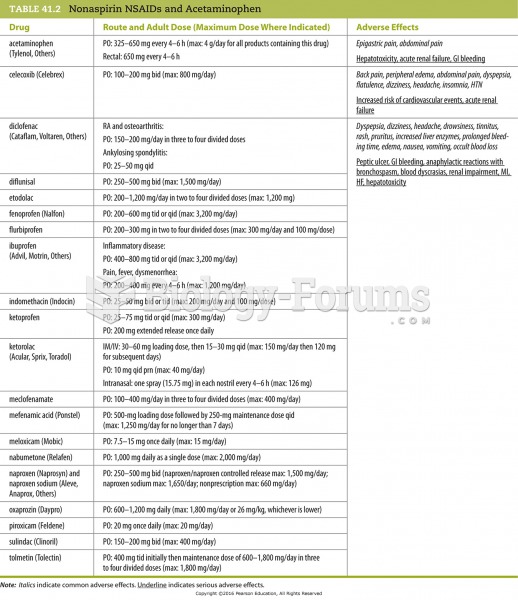|
|
|
There are over 65,000 known species of protozoa. About 10,000 species are parasitic.
Aspirin is the most widely used drug in the world. It has even been recognized as such by the Guinness Book of World Records.
The B-complex vitamins and vitamin C are not stored in the body and must be replaced each day.
GI conditions that will keep you out of the U.S. armed services include ulcers, varices, fistulas, esophagitis, gastritis, congenital abnormalities, inflammatory bowel disease, enteritis, colitis, proctitis, duodenal diverticula, malabsorption syndromes, hepatitis, cirrhosis, cysts, abscesses, pancreatitis, polyps, certain hemorrhoids, splenomegaly, hernias, recent abdominal surgery, GI bypass or stomach stapling, and artificial GI openings.
Each year in the United States, there are approximately six million pregnancies. This means that at any one time, about 4% of women in the United States are pregnant.







